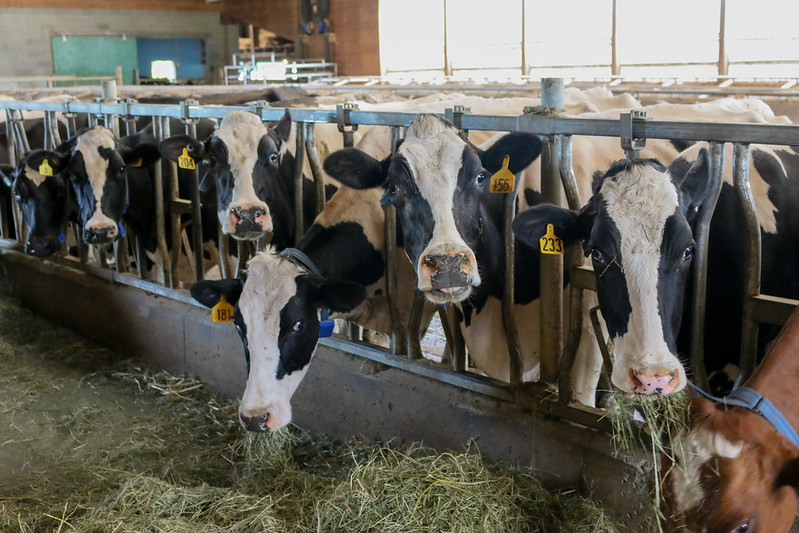
Seaweed is currently being investigated for its inclusion in livestock diets to reduce methane emissions. Measuring the methane reductions possible by including seaweed in feeds is an area of research, which is quite topical at present. There are many studies being done currently, to examine the benefits of the inclusion of seaweed into the diets of livestock. All types of seaweeds are being researched and it seems that Australian red seaweed has the greatest potential for reducing methane from livestock. Abbot et al., (2020) has found methane reductions of up to 98% are possible with using some red seaweed types. This article below by Agriland looks at some of the various trials ongoing in various countries.
I have included a paragraph in the discussion of my thesis looking at seaweed as a solution to reducing emissions from ruminant livestock. I have found from my research of the topic that seaweed has great potential to provide a novel solution to methane mitigation from ruminants. However, the effectiveness, feasibility, and practicality of seaweed ingredients being included in livestock diets must be further researched to ensure the seaweed products are a success. There must be accurate measurements carried out on several realistic trials which will show the the emissions savings possible by using the seaweed-based feeds. The results from the studies should be then clearly portrayed, so that the idea can gain public acceptance.

It also must be factored into consideration, however, that emissions will arise from the collection, manufacturing, and transportation of the seaweed-based products. These emissions would only be taken into consideration when a life cycle assessment (LCA) is carried out. The LCA would take these knock-on emissions by including seaweed in livestock feeds into account. This would allow us to evaluate the overall emissions saved by using the seaweed for this purpose as a livestock feed ingredient.
References:
Abbott, D.W., Aasen, I.M., Beauchemin, K.A., Grondahl, F., Gruninger, R., Hayes, M., Huws, S., Kenny, D.A., Krizsan, S.J., Kirwan, S.F. and Lind, V., 2020. Seaweed and seaweed bioactives for mitigation of enteric methane: Challenges and opportunities. Animals, 10(12), p.2432.
Morais, T., Inácio, A., Coutinho, T., Ministro, M., Cotas, J., Pereira, L., et al. (2020). Seaweed potential in the animal feed: A review. Journal of Marine Science and Engineering 8(8), 559.